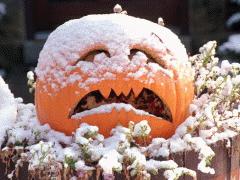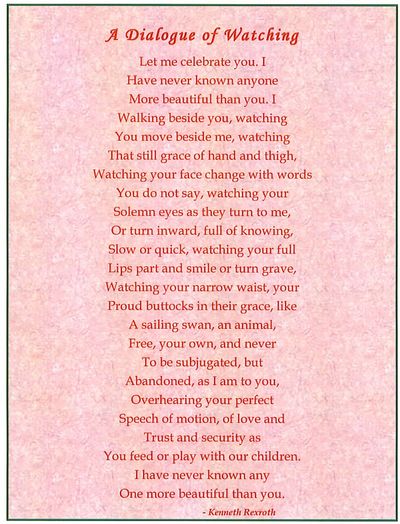by the Night Writer
I saw the following poem on The Writer’s Almanac the other day and thought it was pretty good.
Naming My Daughter
(In the Uruba tribe of Africa, children are
named not only at birth but throughout their
lives by their characteristics and the events
that befall them.)
The one who took hold in the cold night
The one who kicked loudly
The one who slid down quickly in the ice storm
She who came while the doctor was eating dessert
New one held up by heels in the glare
The river between two brothers
Second pot on the stove
Princess of a hundred dolls
Hair like water falling beneath moonlight
Strides into the day
She who runs away with motorcycle club president
Daughter kicked with a boot
Daughter blizzard in the sky
Daughter night-pocket
She who sells sports club memberships
One who loves over and over
She who wants child but lost one.
She who wants marriage but has none
She who never gives up
Diana (Goddess of the Chase)
Doris (for the carrot-top grandmother
she never knew)
Fargnoli (for the father
who drank and left and died)
Peter Pan, Iron Pumper
Tumbleweed who goes months without calling
Daughter who is a pillar of light
Daughter mirror, Daughter stands alone
Daughter boomerang who always comes back
Daughter who flies forward into the day
where I will be nameless.
“Naming My Daughter” by Patricia Fargnoli, from Necessary Light. © Utah State University Press.
Of course it got me to thinking about how my own daughters might have been named if I were Uruban. Actually, some of these have stuck…
Unexpected Blessing
Miracle-holder, Doctor-confounder
The One Who Shouldn’t Be Here,
Sweet-cheeked Eskimo
Jelly Baby
Bane of Yams
Little Potato
Waltzer with Bears
Namer of Things in the Road
Barefoot bleeder
Arm That Wouldn’t Stay Broken
Room Designer, Cloud By Day
Blue-haired Missionary
The Littlest Bassist
Imelda of the 40 shoes
Bunny Whisperer
Mall Diva
Singer of Songs, Maker of Beauty
Courtship Buddy
Aisle Walker
Mrs. Worley
Mommy.
Late Arriver, Early Walker
Flaming Promise, Morning Giggler
She Who Breaks Boards With Her Feet
Devourer of All Things Chocolate
Ninja Cow Nemesis, Doomsteak Provider
Slayer of Paper Targets
Writer Without Appendix, World Traveler,
Girl On a Mission, Opportoonist
Fire By Night
Peach Louise
Tiger Lilly
Story Teller
One With the Laptop
Smite Queen of the Dual-Daggers
NaNoWriMo Winner
Author, Author.
Try it with your own kids! In fact, I hereby proclaim a Meme! I tag Mr. D, Mitch, KingDavid, Gino, Bubba and anyone else who wants to play. Leave your poem in a comment here or on your blog with a link!














